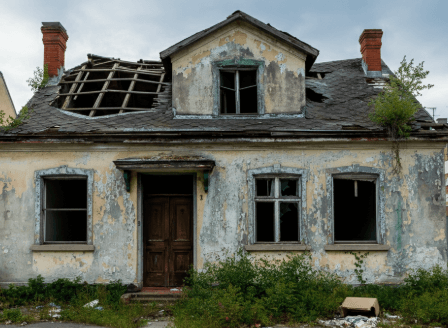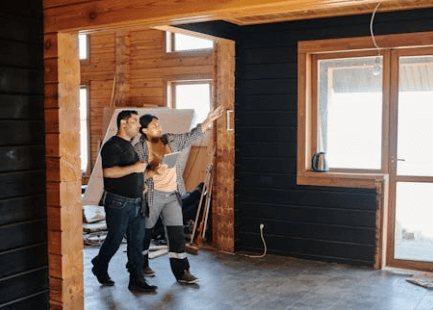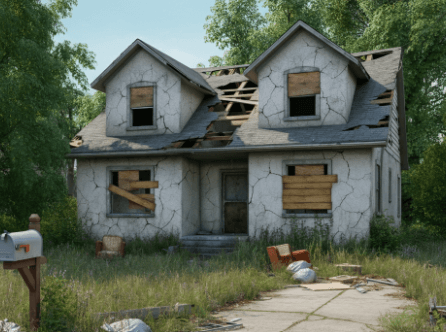In the Sunshine State, ensuring the safety and habitability of residential properties is paramount. Understanding how does a house get condemned in Florida is essential for homeowners, tenants, and concerned neighbors alike. When properties fall into severe disrepair, local authorities step in to address potential health and safety hazards, ultimately declaring such homes unfit for occupancy. This blog will delve into the specific criteria and processes involved in how does a house get condemned in Florida, providing clear insights into the signs and implications of condemnation.
Real estate investors Steve Daria and Joleigh emphasize the significance of consistent property upkeep to avoid the risk of condemnation. They have seen firsthand the detrimental effects of neglect on property values and tenant safety. By staying proactive, homeowners can prevent their properties’ disrepair and ensure they adhere to Florida’s strict housing standards.
Key Points
- Severe Structural Damage: A house can be condemned with major structural issues, such as a collapsing roof, unstable walls, or a compromised foundation. These problems make the property unsafe for anyone to live in.
- Health and Safety Hazards: Properties with extreme health risks, like mold infestations, pest problems, or lack of proper sanitation, may face condemnation. These hazards pose serious dangers to the well-being of residents and the surrounding community.
- Legal Review and Process: The local government or building inspector usually investigates and deems a house condemned. If a property violates building codes, safety standards, or zoning laws, the city issues a notice to the owner after conducting an inspection.
- Owner Responsibilities: Homeowners can address the issues before the property is officially condemned. This may involve making repairs, cleaning up debris, or resolving zoning violations within the timeline.
- Potential Outcomes: Once a house is condemned, it cannot be legally occupied until it’s brought up to code. If repairs are not made, the city may demolish the property, highlighting the importance of knowing the answer to “How does a house get condemned in Florida?” and maintaining your home properly.
What is a Condemned House?
Before we delve into how does a house get condemned in Florida, we must understand the broader impact of condemned properties.
Condemned houses can become havens for criminal activity, such as vandalism, drug use, or squatting, further deteriorating the safety and reputation of the surrounding area.
The process of condemning a house involves a thorough inspection by local authorities, often requiring extensive documentation and legal proceedings, which can be time-consuming and costly for both the property owner and the municipality.

How Does a House Get Condemned in Florida?
How does a house get condemned in Florida, exactly? Florida’s unique climate and geographical challenges contribute significantly to the condemned house crisis.
Hurricanes, flooding, and even sinkholes can render properties unsafe almost overnight.
Beyond natural disasters, the transient nature of some Floridian communities means homes are often left untended, falling into disrepair and eventually into the category of condemnation.
Get An Offer Today, Sell In A Matter Of Days…
Strategies for Dealing with Condemned Houses
Confronting a condemned house can be daunting for homeowners and potential buyers alike.
This section will explore effective tactics to tackle these challenging properties, turning neglect into opportunity.
For Homeowners
Immediate action is vital if you own a property at risk of condemnation or are already deemed uninhabitable.
- Assessment: Hire professionals to assess the extent of damage and outline necessary repairs. This step will give you a clear idea of the costs and help you determine if rehabilitation is feasible.
- Maintenance: Prioritize regular maintenance to prevent further deterioration.
- Financing: Explore financing options, such as renovation loans or government assistance programs, that can assist cover the costs of repairs.
For Real Estate Enthusiasts
While condemned houses may seem risky, they can yield high returns with the right strategies and precautions.
- Research: Conduct thorough research into the property’s history, condition, and potential before making an offer.
- Renovation Plans: A detailed renovation plan should address all necessary repairs so that the property can pass inspection for occupancy or resale.
- Professional Help: Enlist the help of professionals, such as contractors and inspectors, to ensure all necessary repairs are completed correctly.
For House Sellers
If you want to sell a condemned house, it’s important to understand the challenges and potential options.
- Disclosures: When listing a property for sale, be honest about its condition. Failure to disclose known issues can lead to legal consequences. See the Florida Homeowner Disclosure Law.
- Pricing: Consider the property’s current condition when determining a selling price. Potential buyers may negotiate for lower prices due to the added cost of repairs.
For House Buyers
Buying a condemned house may be an opportunity to snag a bargain, but it also comes with significant risks.
- Inspection: Always thoroughly inspect the property before making an offer. It’s best to enlist the help of a professional inspector who can identify potential hazards or costly repairs.
- Budget: Create a realistic budget for necessary repairs and renovations. Setting aside extra funds for expenses that may arise during the renovation process is also wise.

For Investors
Condemned houses can be a lucrative investment opportunity for those willing to take on the risk.
- Research and Due Diligence: Research the property thoroughly, including its history, condition, and potential resale value. Develop a detailed renovation plan and understand all necessary permits and regulations.
- Network: Connect with other real estate investors or professionals who have experience dealing with condemned houses. They may have valuable insights and advice to offer.
- Contingency Plans: Have contingency plans if the property cannot be rehabilitated or complications arise during renovation.
For Community Members
Condemned houses, with their crumbling facades and neglected interiors, often remind a community of broader systemic issues.
Beyond their immediate physical decay, these properties can catalyze many adverse effects that ripple through the entire neighborhood and beyond its borders.
- Community Action: As community members, we can take action by reporting unsafe or abandoned properties to local authorities for inspection and potential rehabilitation.
- Volunteer Efforts: Participate in community volunteer efforts to clean up and rehabilitate condemned properties. This can not only improve the aesthetics of the neighborhood but also bring the community closer together.
- Awareness: Educate others on the risks and effects of condemned houses in our communities. By spreading awareness, we can work towards finding solutions and preventing further properties from falling into disrepair.
Frequently Asked Questions
This section addresses common queries about the process and implications of having a house condemned in Florida.
Is it risky to buy a condemned house?
Buying a condemned house involves risks, such as unforeseen repair costs and legal challenges.
However, with thorough research and professional help, it can be a profitable investment.
Are there financial assistance programs for rehabilitating condemned houses?
Yes, various financing options, including renovation loans and government assistance programs, can help in covering repair expenses.
What should I do if there’s a condemned house in my neighborhood?
Report the property to local authorities and participate in community efforts to address the issue.
Community engagement can lead to the rehabilitation and improvement of the neighborhood.
Conclusion
Condemned houses may seem like a nightmare for homeowners and a risky venture for investors, but proper strategies and precautions can offer rehabilitation, profit, and community revitalization opportunities. It is necessary to understand how does a house get condemned in Florida and proactively address its effects. With careful planning, diligence, and courage, these properties can shed their haunted reputations and become valuable assets.
**NOTICE: Please note that the content presented in this post is intended solely for informational and educational purposes. It should not be construed as legal or financial advice or relied upon as a replacement for consultation with a qualified attorney or CPA. For specific guidance on legal or financial matters, readers are encouraged to seek professional assistance from an attorney, CPA, or other appropriate professional regarding the subject matter.

